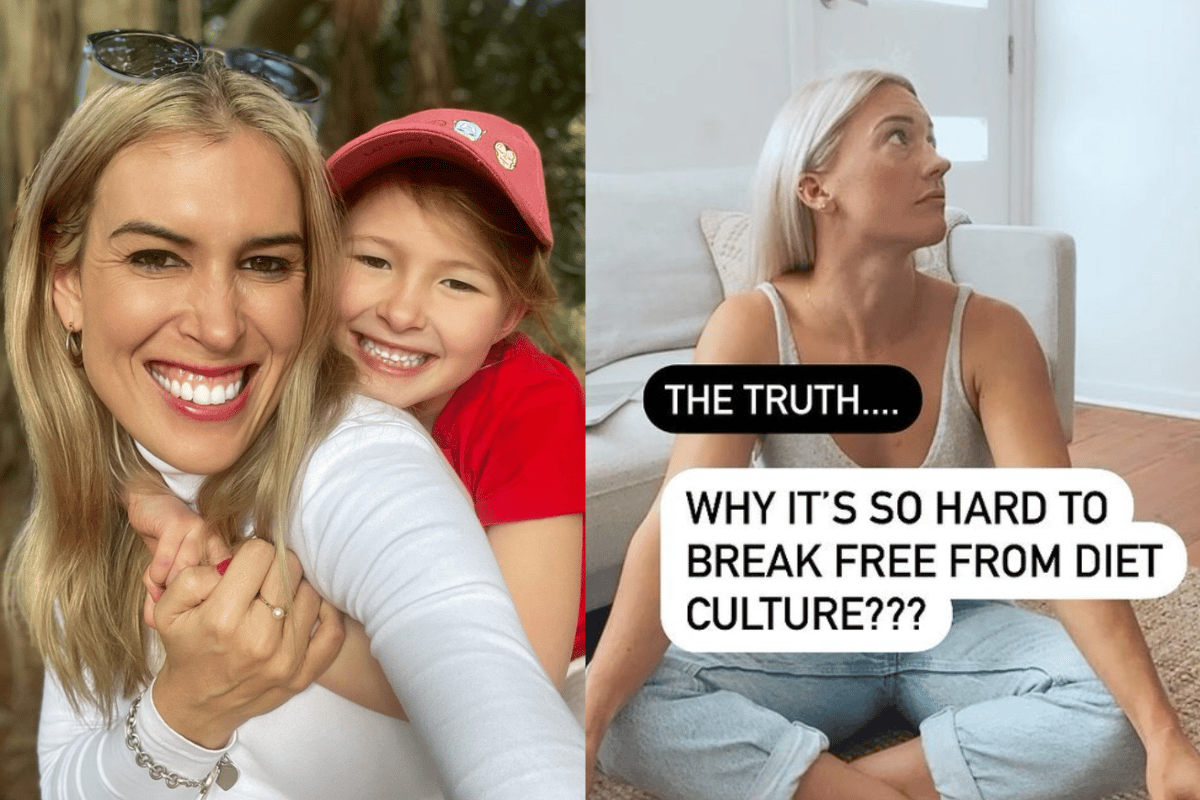
Content warning: This post discusses disordered eating, which may be distressing to some readers.
Stella's mum never commented on her daughter's weight. But as a child and young teen, Stella was constantly surrounded by diet culture, with her mum always on a fad diet of some sort. A diet which was often unattainable and extreme. It's no wonder that had an effect on Stella herself, who only recently was able to break free from the cycle and find balance.
But she doesn't blame her mum – because she too was a victim of diet culture.
For Gloria, she feels her mother played a more conscious role in passing down unrealistic body image expectations. As an Asian woman, she has been told by those around her that anything other than slim, thin and skinny is "undesirable".
So when Gloria didn't fit the petite stereotype, her mother projected. She would sometimes call Gloria names, and even chastised Gloria's sister for not losing enough baby weight, six weeks after giving birth.
As someone who lives in a bigger body compared to her mother, Gloria now focuses on how she feels and her overall health rather than the number on the scales. It's a different outlook to how Gloria's mother was raised, and there are cultural influences at play. It's for this reason that Gloria has empathy for her mum – because she knows all too well how difficult it is to break free from the perceptions drilled into you as a child.
Watch: How to improve your daughter's body image. Post continues below.

Top Comments